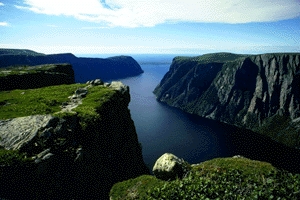
Ecological integrity
According to the Canada National Parks Act, the law governing national parks in Canada, "ecological integrity" means, with respect to a park, "a condition that is determined to be characteristic of its natural region..."
In plain language, ecosystems have integrity when they have their native components intact.
An ecosystem has ecological integrity when...
Parks Canada's objective is to allow people to enjoy national parks as special places without damaging their integrity.
For national parks, ecosystem management considers the following:
Ecological integrity should be assessed using science and Indigenous knowledge. These perspectives allow a deeper understanding known as “two-eyed seeing.”
Because ecosystems are constantly changing, conservation strategies should maintain or restore key ecological processes that reflect their natural condition. For example, prescribed burning is used as a way to reintroduce fire in national parks.

National parks are part of larger ecosystems and must be managed in that context. Parks Canada recognizes the need to integrate parks into their surrounding landscapes so that parks function as part of a connected network.
Populations of species should be managed to levels that have a high likelihood of maintaining themselves.
Ecosystems have characteristic rates of change. Understanding rates and direction are critical to understanding the system. For example, Parks Canada is studying the impacts of climate change on national parks to anticipate the effects that it may have on their ecological integrity.

Parks have a limited capacity to withstand use. Visitors are welcome to visit them but the cumulative effects of human use and facilities should not be a strain on that capacity.
Ecological integrity must be assessed and understood at a landscape scale. While ecological integrity cannot be assessed at the scale of a single forest stand, campground, or parking lot, it can be impacted at any scale.
The goal of conserving ecological integrity is best addressed by maintaining or restoring the diversity of genes, species and communities expected for the region. It is simply consistent with the vision of integrity, which is "wholeness"—if parts are missing, the ecosystem is not whole.
Related links
- Date modified :